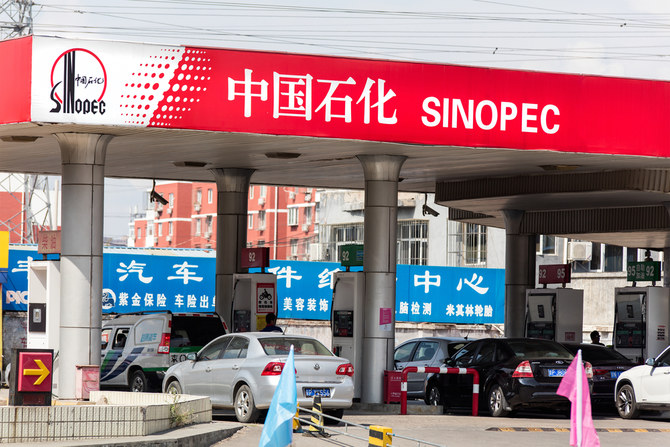RIYADH: Five US-listed Chinese state-owned companies whose audits are under scrutiny by the US securities regulator said on Friday they would voluntarily delist from the New York Stock Exchange.
Oil giant Sinopec and China Life Insurance, Aluminium Corporation of China, PetroChina and a separate Sinopec entity, Sinopec Shanghai Petrochemical Co., each said they would apply to delist their American Depository Shares this month. They will keep their listings in Hong Kong and mainland China.
In May, the US Securities and Exchange Commission flagged the five companies and many others as failing to meet US auditing standards. The companies did not mention the dispute in their announcements, which come as tensions mounted after US House of Representatives Speaker Nancy Pelosi visited Taiwan.
Beijing and Washington are in talks to resolve a long-running audit dispute which could result in Chinese companies being banned from US exchanges if China does not comply with Washington’s demand for complete access to the books of US-listed Chinese companies.
Beijing bars foreign inspection of audit documents from local accounting firms, citing national security concerns.
“These companies have strictly complied with the rules and regulatory requirements of the US capital market since their listing in the US and made the delisting choice for their own business considerations,” the China Securities Regulatory Commission said in a statement.
China sanctions Lithuanian deputy minister for Taiwan visit
China’s foreign ministry said on Friday it had imposed sanctions on Lithuanian Deputy Transport and Communications Minister, Agne Vaiciukeviciute for visiting Taiwan, the latest development in Beijing’s diplomatic row with the EU country.
The foreign ministry said China would also suspend engagement with Vaiciukeviciute’s ministry and cooperation on transportation with Lithuania, a small Baltic republic.
Lithuania’s ministry of transport and communications said it regretted China’s announcement.
“Beijing is choosing to continue and intensify the course of illegal actions against an EU member state,” the Lithuanian ministry said in a statement to Reuters.
“This is not only not conducive to the development of China’s relations with the democratic world, but also reverses Beijing’s own declared policy so far of not hindering the development of a mutually beneficial relationship with Taiwan, one of the world’s most progressive economies.
China claims Taiwan as its territory and is against foreign politicians visiting the island. Democratically governed Taiwan rejects China’s claims.
CATL to build $7.6 billion Hungary battery plant to supply Mercedes, BMW
China’s CATL said on Friday it would build a $7.6 billion battery plant in Hungary, Europe’s largest so far, as the world’s biggest electric vehicle battery maker gears up to meet growing demand from global automakers.
CATL said that construction of the plant in the eastern Hungarian city of Debrecen, its biggest overseas investment, would start this year, after receiving approvals, and should last no more than 64 months.
Once built, it is set to be Europe’s largest battery cell plant, and CATL’s second in the region, making battery cells and modules for carmakers including Mercedes-Benz, BMW, Stellantis and Volkswagen.
The expansion comes as European automakers accelerate a transition to electric vehicles in their home markets, prompting surging demand for batteries from local suppliers and causing a run on supply deals to avoid production bottlenecks.
Shares of Hygon surge in debut
Shares of computer components distributor and maker Hygon Information Technology Co. surged in its Shanghai debut, making this a company’s second-best opening performance in the year, according to a Bloomberg report.
The report states that shares of the firm, post its initial public offering, soared as much as 107 percent before finally closing 67 percent higher at 60.10 yuan ($8.91) on Friday.
Beijing-based Hygon executed this year’s third-largest listing in China where big offerings are flourishing despite a slump in traditional IPO venues.
Hygon’s IPO raised 10.8 billion yuan following the sale of 300 million shares at 36 yuan each.
(With input from Reuters)


























